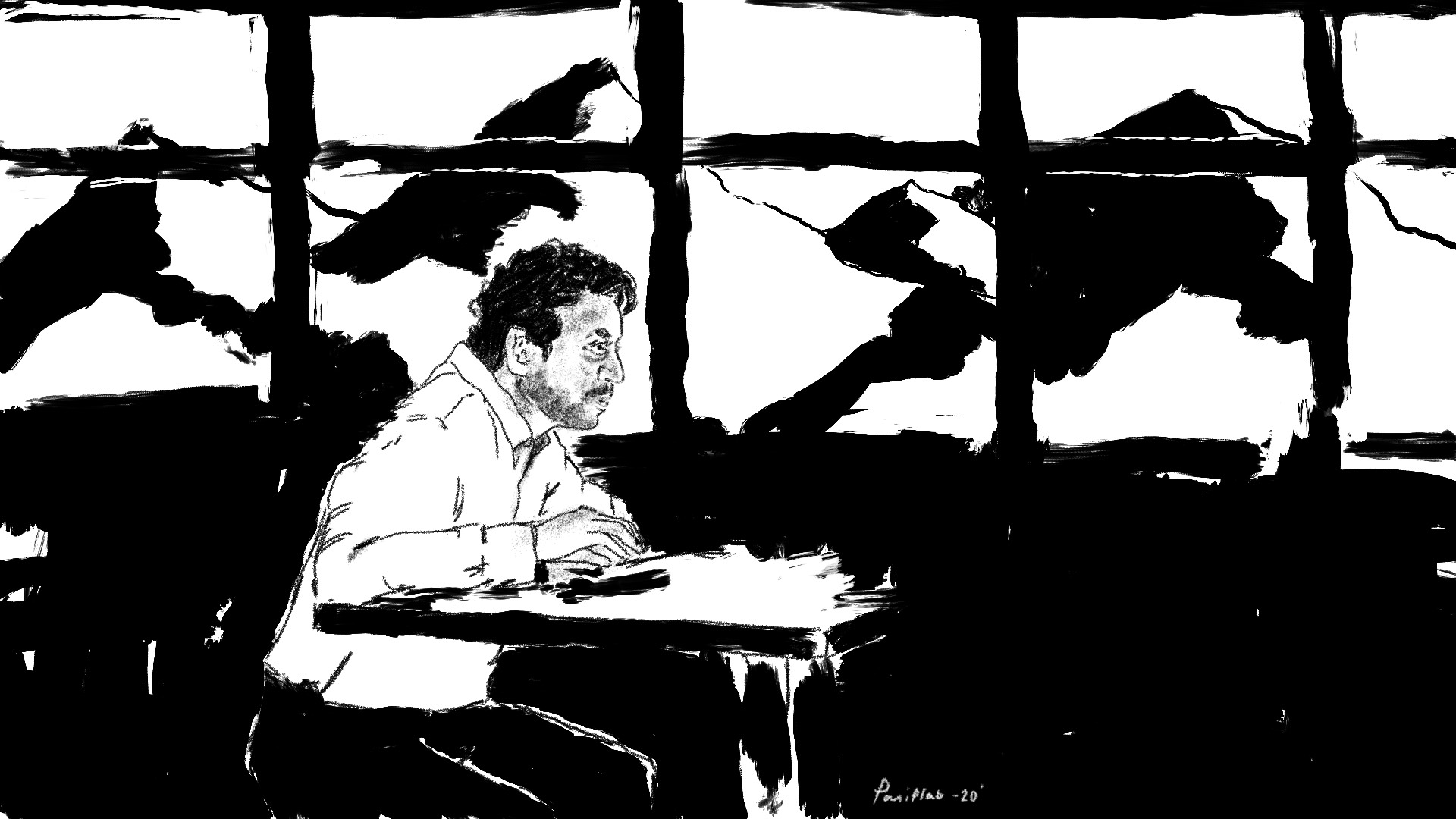I met Irrfan Khan ten years ago on a November evening in Kathmandu. He had been invited to the Kathmandu International Theatre Festival being organised at Aarohan Gurukul drama school.
I was a reporter for an English daily. The leisure page I wrote for was filled with Hollywood and Bollywood news sourced from different international news agencies.
Most of the time, I tried to write something by phoning celebrities and asking them their favourite foods, colours, weekend plans and resolutions. It meant spending hours on the phone with a list, hoping that the person would pick up and answer patiently. Some did answer and I wrote small paragraphs with their answers. I rarely met them in person and few would have recognised me even if they did.
One evening, I was given a new assignment. It was to interview actor Irrfan Khan. I am not sure how the task came to me, since it was the reporters at the weekend section who interviewed important celebrities for feature stories.
But here I was, going to interview Khan, the brilliant Indian actor who was now making his mark in English films. I asked a friend of mine at the office to come along and we hopped onto a tempo from Sundhara, near our office, to Gurukul Theatre. I can still recall our excitement throughout that half hour journey.
Irrfan was waiting for us in one of the theatre halls. We must have spoken for about an hour about his life and films. I was struck by his ease. He was restrained yet open. His eyes were playful and inquisitive, answering yet encouraging me to open up. He had no airs about being a celebrity. He was just an actor talking about his work.
Also read: Losing Irrfan, My Second Father
After the interview, he took out a packet of tobacco and papers from his pocket and rolled a cigarette. I have never seen anyone roll a cigarette so elegantly. We then posed for a photograph – Irrfan with his arms around my friend and me, with both of them looking at the camera and me looking at my friend.
My friend, who had the photograph, had wanted to send it to me. I told her it was the same if I had it or she had it.
Unfortunately, I no longer have a copy of the interview, a link or the photograph. The link to my article does not work, I have no physical evidence of the article or the photograph, Gurukul Theatre shut down subsequently and my friend and I have moved on.
But I remember what I was wearing – it was my sister’s oversized black sweater from sixth grade that I had recently discovered had a frontal pattern if you looked closely. There was also a tattered purple scarf to go along with it.
Later, I returned to the newspaper office and wrote into the night and the interview was published the next day. Irrfan sent me a link of an article in the New York Times, which had reviewed his episode in the HBO series In Treatment earlier that month for reference. It came with a background logo of a man blowing heart balloons.
After my article was printed, I sent him the link. He replied from his Blackberry, “Thank you, Diksha, it’s nice, I read it already.”
My 22-year-old self was ecstatic.
I had met Irrfan during that optimistic time in my youth when I felt like I could write my way through life and the emerging friendships I had would last forever. Both have suffered, but the memory of that one evening in November stays with me.
I have often tried to reconstruct that evening in bits and pieces as I have changed my line of work and moved around the world. I have followed his films through the years and watched his performances repeatedly. The cheeky humour, the mumbling words, lingering eyes, and his tall, lanky presence.
Today I will watch him again for the umpteenth time as a retiring clerk, a widower in Mumbai exchanging notes hidden in a lunchbox with a homemaker. The notes will vary in length each day depending on the taste of the food sent by her in a green dabba, sometimes too spicy, salty or just perfect. As they write to each other about their lives, he will contemplate, “I think we forget things, if we have no one to tell them to.”

The Lunchbox (2013). Photo: UTV Motion Pictures
Dikshya Karki is a research scholar currently in Delhi.

